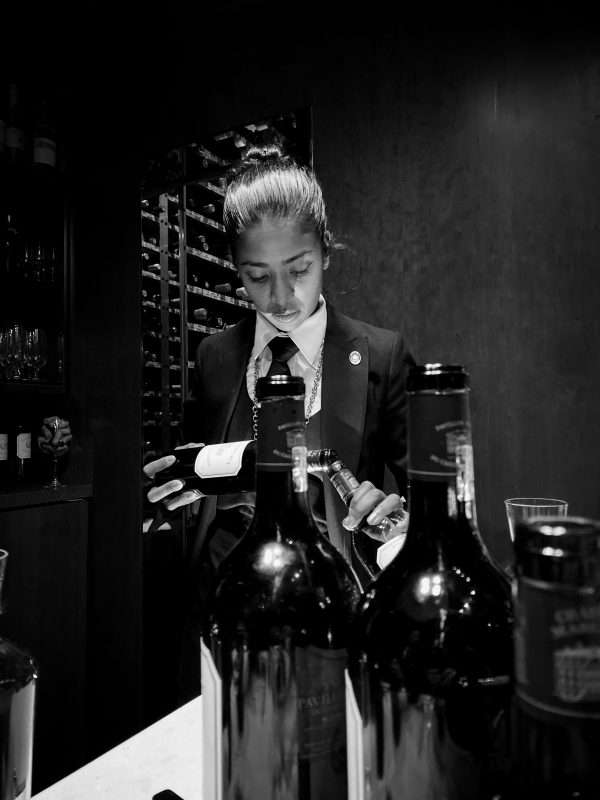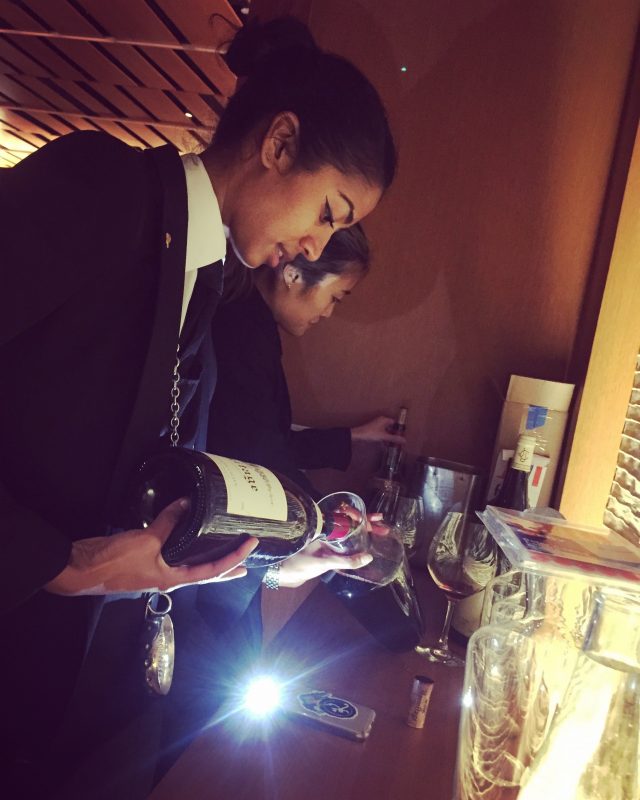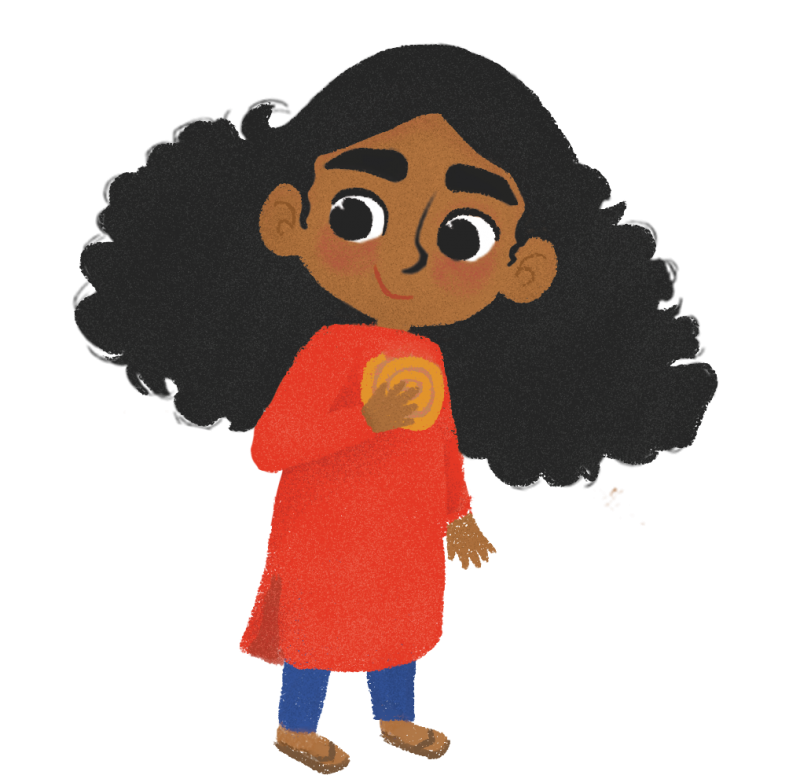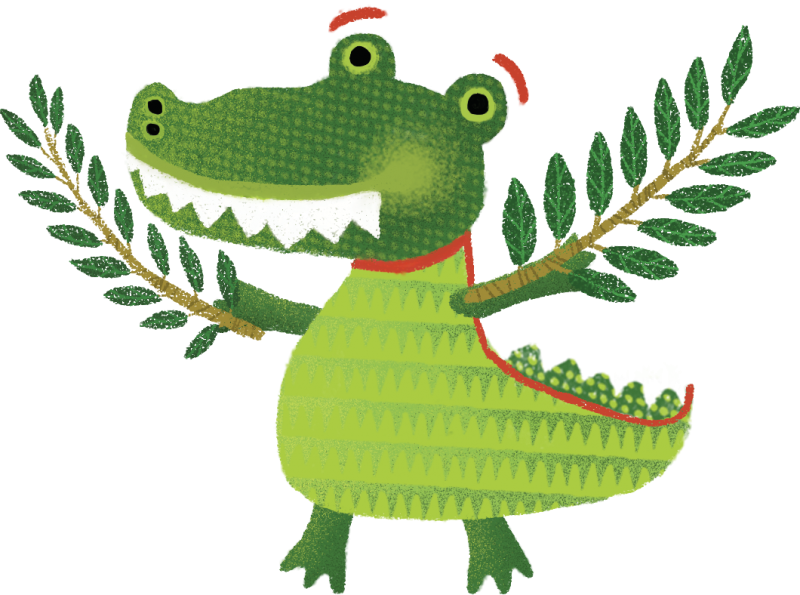Part 2: On Food Adventures and Cultural Appreciation
The second part of our interview with Sarah Thomas, focuses on teaching children about cultural appreciation, as well as addressing what the future holds for Kalamata’s Kitchen. Read part 1 here.
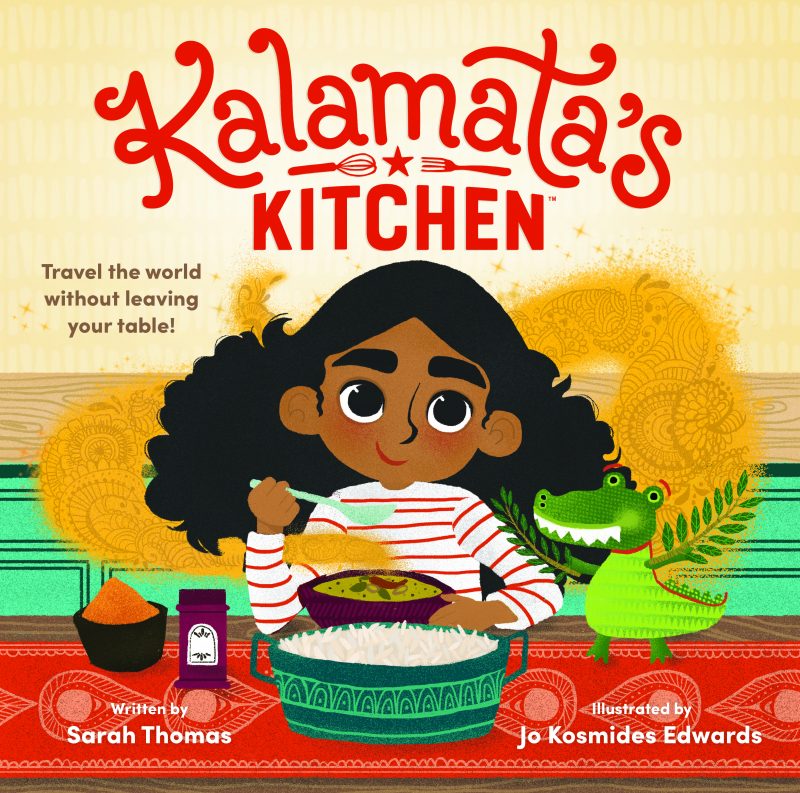
Quench: How does your education and background as a sommelier inform Kalamata’s Kitchen for you?
Sarah Thomas: Honestly, the biggest thing outside of the obvious which is tasting and smelling, is that there’s really fun and creative ways to use the descriptive language most often attributed to wine. For instance, I could describe a sparkling lemonade to a kid which makes it an experience. I could talk about the brightness, and what do I mean by brightness? I’m talking about acidity, but you don’t say acidity if you are really trying to sell or discuss the beauty of wine, instead, you talk about brightness. Why are these fun food descriptions often limited to restaurant reviews or a wine or tasting notes? It’s like, no, let’s talk about your kids and their favorite foods as an example. What different textures are they experiencing, what sounds are they hearing and what are they smelling and seeing? So, it’s fun for me to translate this for kids.
Q: How are you teaching children to be food adventurers, specifically of other cultures, while teaching the complicated history that is appropriation and thoughtful cultural representation? How early is too early for children to understand such matters?
ST: Well, I’ll answer the second part first, I think no, your child is never too young, because the parents of children who do experience racism don’t have the luxury of choosing when their kids experience racism for the first time. And so, in order to prevent that I think that understanding the ugliness behind it and why it happens is something that I think is important for children to be on the lookout for.
I think even if your child isn’t likely to experience racism, you should probably talk to them about being on the lookout for other people experiencing it. And that’s teaching empathy, as I’ve previously mentioned. That’s reminding them that your experience is not the only one in the world. And I think that’s really important. And I think you can do it in a really loving and thoughtful way.
I think that one of the ways that kids really learn is in a non-didactic way, and one way to teach is through stories, right? So that’s why narrative works more than lessons but lessons can be embedded in narrative. If Kalamata has the idea to do something, it’s her idea. It then becomes an inspiration point for a kid to say, “could be my idea too, and I’m going to choose to do it,” which is a much better way to internalize lessons than someone saying you should do something because…
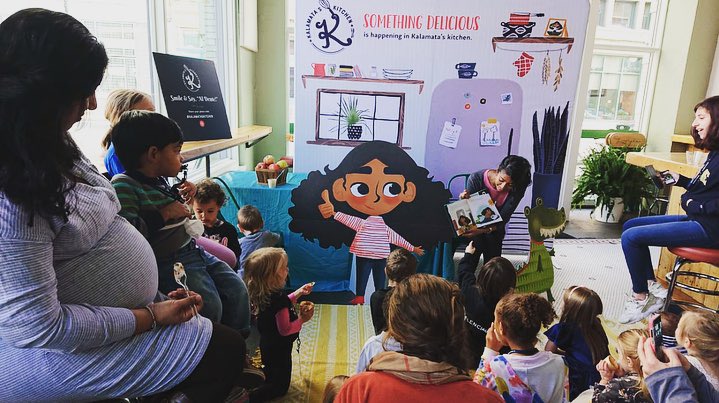
And so, to the first part of your question, I think that we do it through storytelling, that’s the biggest part of it and through characters. I think it’s really easy for grownups to forget that kids have a lot of freewill and free thought, and they don’t want to hear you telling them what to do. And the point isn’t really to tell kids what to do, it’s to inspire them to think for themselves, this is the right thing to do. That’s why the characters in narratives and storytelling are so important in terms of representing cultures accurately, that’s something I take really, really seriously and I think a lot about it because of how my culture has been misrepresented and appropriated.
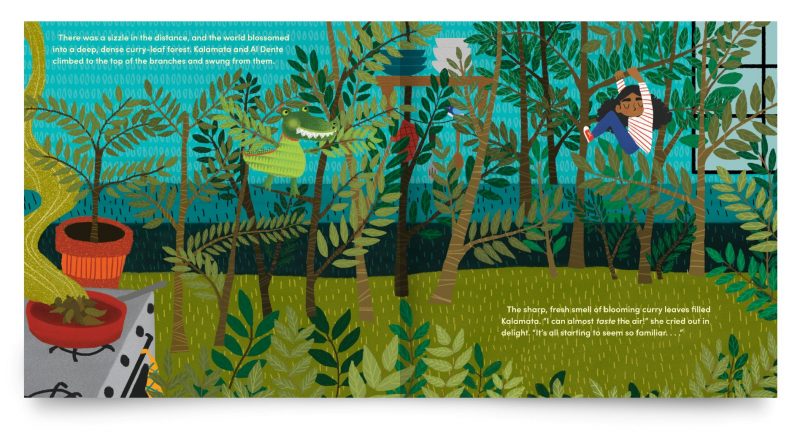
I also don’t believe that I should translate someone else’s story. I believe in amplifying someone else’s voice. So, if someone has a story to tell, and they want to tell it to me, I’m going to find the most accurate way I can represent it through them, making them a character, making this a quoted article versus me translating what they said to me. Because I don’t believe that I have the authority to tell someone else’s story. But if someone shares it with me, I can find a creative way to do it that is still amplifying their voice and the storytelling.
As I previously mentioned, the upcoming book is inspired by my own story, so it was a little easier to do. And it’s like, the authenticity is there, because it’s literally my own memories. For the future books, they’re not going to be about Indian food, maybe some of them will, but they’re going to be about food and cultures from all over the world. And my way of doing that is really by interviewing people, gathering stories and integrating them into the actual storytelling.
Q: How can parents help to raise the next generation of curious, courageous, and compassionate eaters?
Kalamata’s Kitchen is also something that parents need. The best thing I think a parent can do, is to get their kid really excited about the experience of trying something new for the first time. And if you make that into an adventure and you know adventures are fun, then trying something new is fun. I’m not a parent but I’ve witnessed this a lot, and I know how hard it is to feed kids. I want Kalamata’s Kitchen to be considered another resource that parents have in their tool bag to try and get their kids to do new things. I hear a lot of personal biases translated or passed onto their children. And also, being mindful of the language being used to present things to kids. Getting interested is a conversation starter, especially for children who are picky eaters, texture or flavor averse. If the hang up of trying something new is just the fear of the unfamiliar, then I really think Kalamata and Al Dente have a really good shot of getting your kids over it. Basically, getting excited for food adventures that they get to go on with their children.
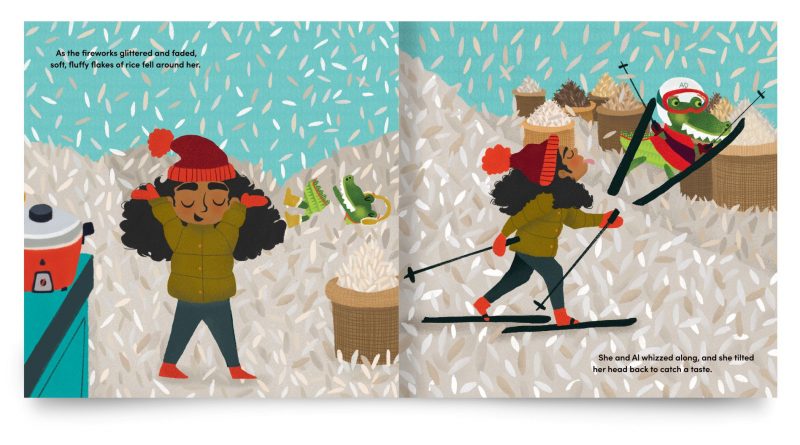
Q: What can we expect from you next?
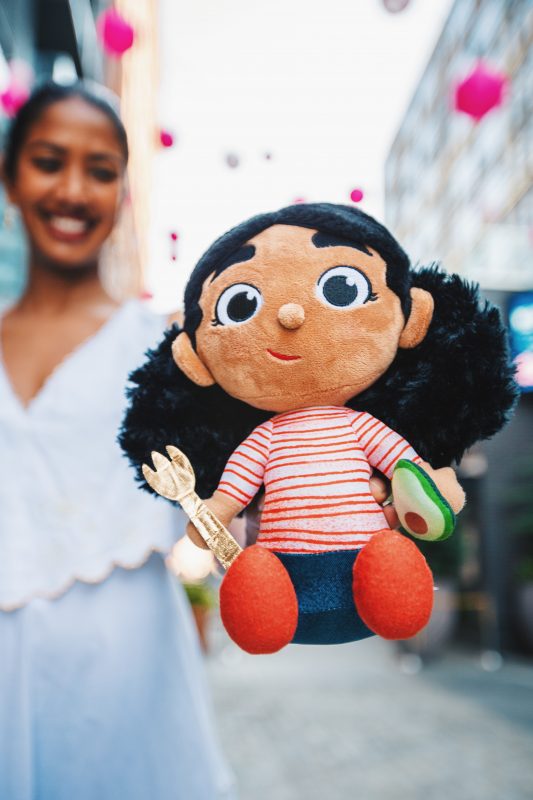
ST: Well, there’s a lot coming up for Kalamata’s Kitchen and it’s all really exciting. We just launched our chef ambassador program. And our first book, in a multi book series with Penguin Random House is coming out by the end of July [editor’s note: the book was released on July 20th]. We have plush toys and an animated show in development, and we’re also talking about creating a live action show based around our Taste Bud Travel Guide which we’re relaunching and includes food adventure passports.
Derek and I really just believe in what we are doing, and our whole team is so driven to make it succeed because we genuinely think this can change the world. I just want kids to find the same joy, comfort, and a sense of belonging that I have through food.
Kalamata’s Kitchen was released on July 20, 2021. The book can be ordered through Random House or consider purchasing from your local independent book shop.
To keep up with Kalamata’s adventures and more, visit www.kalamataskitchen.com and follow @Kalamataskitchen and Sarah Thomas on Instagram.
Photos in this article were supplied by Sarah Thomas

